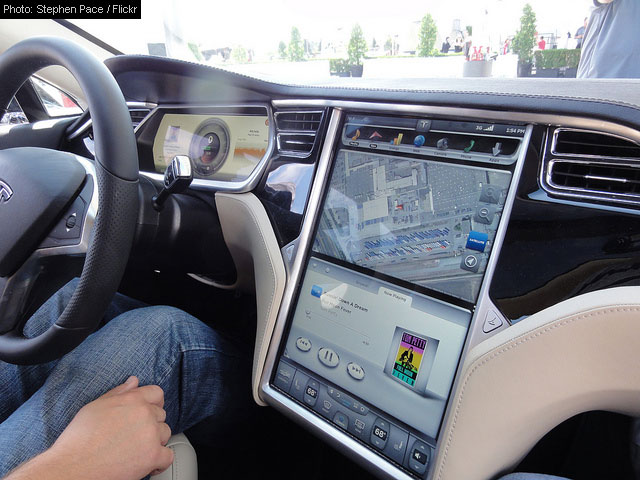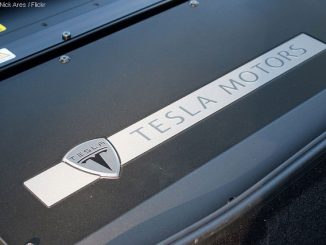In a move that promises to shape the future landscape of automotive technology, members of President-elect Donald Trump’s transition team are reportedly setting their sights on establishing a federal framework for fully autonomous vehicles as a top priority for the upcoming administration’s Department of Transportation. This strategic focus was revealed by individuals familiar with the matter, as per a Bloomberg report.
Elon Musk, CEO of Tesla Inc. (TSLA) and a prominent figure in Trump’s inner circle, stands to gain significantly from such regulatory changes. Musk has heavily invested Tesla’s future in the development of self-driving technology and artificial intelligence (AI). The prospect of new rules that would allow for the deployment of vehicles without traditional human controls like steering wheels or foot pedals could accelerate Tesla’s plans to introduce its driverless Cybercab model by 2026.
The market responded positively to the news, with Tesla shares surging over 7% to $342 in premarket trading on Monday, bringing the stock’s gain to almost 30% since election day. Meanwhile, ride-sharing giants Uber Technologies Inc. (UBER) and Lyft Inc. (LYFT) saw declines of 2.53% and 3.5%, respectively, in premarket trading, possibly reflecting competitive concerns or a shift in investor focus.
Currently, the National Highway Traffic Safety Administration (NHTSA) allows manufacturers to deploy up to 2,500 self-driving vehicles annually under specific exemptions. However, this number falls far short of what companies like Tesla are aiming for, especially with Musk’s vision of mass-producing autonomous robotaxis. The existing cap significantly hampers the scale at which these vehicles can be introduced to the market, a bottleneck that a revised federal framework could address.
The report also noted that the Trump transition team is not only looking to reform these regulations but is actively in the process of identifying policy leaders who can craft this new regulatory environment. Early discussions within Congress suggest a bipartisan interest in creating comprehensive federal rules for autonomous vehicles (AVs), which could facilitate a smoother legislative path forward.
Among potential candidates for Transportation Secretary, Emil Michael, a former executive at Uber, has been mentioned. His involvement could signal a direction towards policies that favor tech-driven transportation solutions. Additionally, Republican Representatives Sam Graves of Missouri and Garret Graves of Louisiana are being considered for leadership roles within the department, indicating a possible robust political backing for these initiatives.
Despite these developments, the transition team has remained tight-lipped, not responding to requests for comment, leaving much of the policy details in the realm of speculation and anticipation.
The push for a federal framework comes at a time when the U.S. has seen legislative attempts to expand the deployment of self-driving cars falter. For instance, while a bill to increase the exemption limit to 100,000 vehicles passed the House during Trump’s first term, it has been stalled in the Senate. Moreover, efforts to integrate such legislation with other bills during the Biden administration were unsuccessful, partly due to clauses that aimed to limit consumer lawsuits against manufacturers.
This initiative by Trump’s team, if realized, could not only catalyze Tesla’s ambitious plans but also pave the way for a broader integration of autonomous vehicles into the American transportation ecosystem, potentially revolutionizing how we think about travel and urban mobility. However, with policy details still under wraps and the legislative process known for its complexities, the road ahead for autonomous vehicle legislation remains as unpredictable as the technology itself.





Leave a Reply